WAR CRY



Premier League season kicks off this weekend
‘Despite business success, my life was a mess’


The Salvation Army is a Christian church and registered charity seeking to share the good news of Jesus and nurture committed followers of him. We also serve people without discrimination, care for creation and seek justice and reconciliation. We offer practical support and services in more than 700 centres throughout the UK. Go to salvationarmy.org.uk/find-a-church to find your nearest centre.
The Salvation Army first published a newspaper called the War Cry in London in December 1879, and we have continued to appear every week since then. Our name refers to our battle for people’s hearts and souls as we promote the positive impact of the Christian faith and The Salvation Army’s fight for greater social justice.
Editor: Andrew Stone, Major
Deputy Editor: Philip Halcrow
Assistant Editor: Sarah Olowofoyeku
Staff Writer: Emily Bright
Staff Writer: Claire Brine
Editorial Assistant: Linda McTurk
Graphic Designer: Rodney Kingston
Graphic Designer: Mark Knight
Graphic Designer: Natalie Adkins
Email: warcry@salvationarmy.org.uk
The Salvation Army United Kingdom and Ireland Territory 1 Champion Park London SE5 8FJ
Tel: 0845 634 0101
Subscriptions: 01933 445445 (option 1, option 1) or email: subscriptions@satcol.org
Founder: William Booth
General: Lyndon Buckingham
Territorial leaders: Commissioners Jenine and Paul Main
Editor-in-Chief: Major Julian Watchorn
weekly by The Salvation Army © The Salvation Army United Kingdom and Ireland Territory ISSN 0043-0226
Premier League football fans will be hoping for good things from the new season, which kicks off this weekend.
Success will mean different things at different clubs – it could be winning the league, qualifying for European competitions or avoiding relegation. When it comes to top-flight football, success comes in all shapes and sizes.
The same is true in many areas of life. What counts as success and fulfilment for one person may seem hollow and worthless to someone else.
From the outside, it looked as if Rob Fowler had it all. However, the businessman’s swanky flat and Porsche were covering up his struggles with booze and drugs. His life, as he tells us this week, was actually ‘a big mess’. But Rob says that as he hit rock bottom, he had an out-of-this world experience of God and was filled with peace. It led him to discover a new direction for his life and a desire to spend time with God.
‘Every lunchtime, I’d go and sit in this empty church and pray to God,’ he says. ‘I didn’t even really know how to pray back then, but I recognised it as a simple conversation and enjoyed the peace.’
Finding peace within the walls of a church is something that many people have done. Some such buildings have been providing a place of sanctuary for hundreds of years.
The National Churches Trust is committed to conserving these places of worship, meaning that future generations will also be able to experience what they offer.
‘Church is somewhere where you can feel solace and at peace,’ the charity’s chief executive, Claire Walker, tells us. ‘People of all faiths and none come in for quiet reflection.’ She adds that churches are ‘so important because they are there for everybody’.
Claire is right: churches are for all people. But what is even better is the news that the God who inspired their construction makes himself available to everybody as well. The door is always open.
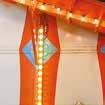
The Salvation Army Trust is a registered charity. The charity number in England, Wales and Northern Ireland is 214779, in Scotland SC009359 and in the Republic of Ireland CHY6399. Printed by CKN Print, Northampton, on sustainably sourced paper






Feature by Andrew Stone
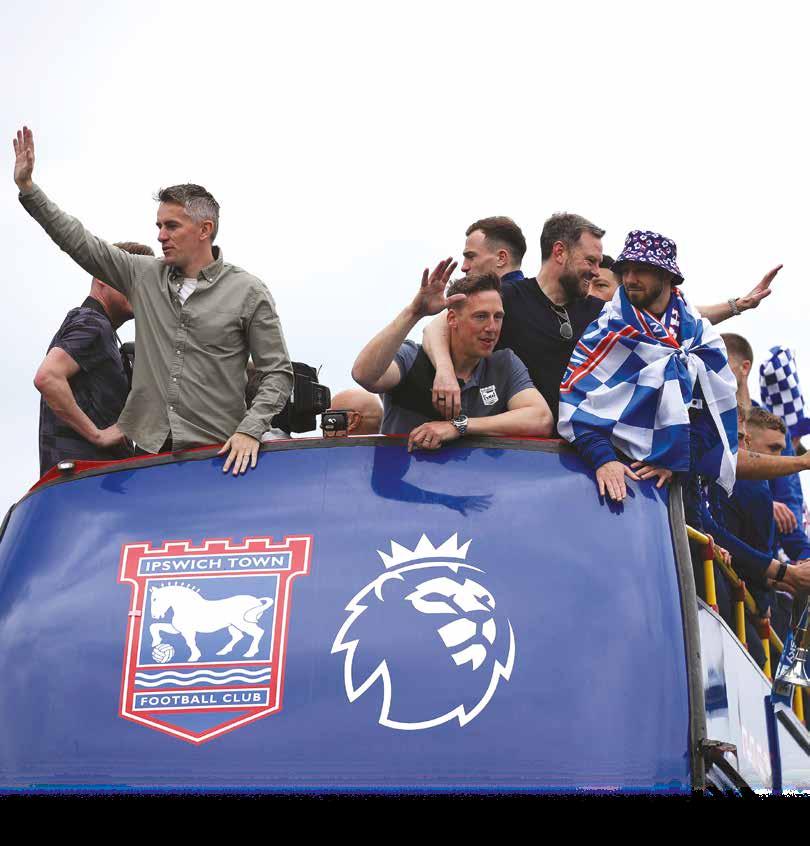
It was only last month that the Euros final took place in Germany and the hearts of all English football fans were broken. But this weekend most of the players who made up that defeated team will be back in action as the new Premier League season kicks off.
Supporters from Newcastle to Brighton and from Liverpool to Ipswich are hoping that the next nine months turn out to be memorable for all the right reasons as their team tackles the challenges of what some consider to be the best league in the world.
For Ipswich Town fans, this is a memorable season even before a ball is kicked. In May, they were promoted from the Championship, along with Southampton and Leicester City. However, unlike their fellow promoted teams, who returned to the top flight after just one season away, Ipswich are back after a 22-year absence.
Led by their up-and-coming manager, Kieran McKenna, and buoyed by new players signed over the summer, the Tractor Boys will be hoping to give a good account of themselves as they pitch up at iconic stadiums such as Old Trafford, Anfield and Stamford Bridge.
However, after so long away from the top league, the team’s supporters couldn’t be blamed if they felt a certain amount of nervousness. It will be the first time that a generation of those fans will have experienced the Premier League for themselves.
Taking on anything new, or returning to something after a long time away, can be a stressful experience, whether it’s on a football pitch or in some other area of life. Starting new jobs or new relationships or finding a new place to live can be difficult. Returning to what was once a familiar place can also be daunting, particularly if things didn’t work out well before.
Such experiences can be better if we have people with us – if we feel we have someone on our side. Sometimes, though, we have to face a new situation without anyone else, and that can make it seem even scarier. But even then we don’t have to be alone.
God has promised always to be with those people who turn to him. One Christian wrote: ‘God has said, “Never will I leave you; never will I forsake you.” So we say with confidence, “The Lord is my helper; I will not be afraid”’ (Hebrews 13:5 and 6 New International Version).
By deciding to place our trust in him, we can know God’s presence in all the situations we face in life. And his presence will give us the confidence and the peace we need to deal with even the most challenging.
If we ask God to be with us, we will never walk alone.
Emily Bright gives her take on a story that has caught the attention of War Cry reporters
‘Our cancel culture society has forgotten how to forgive,’ declared a Telegraph comment piece. Forgiving the sweeping-generalisation headline, I read on.
Referencing Olympic dressage champion Charlotte Dujardin’s fall from grace, columnist Jane Shilling explained: ‘For onlookers, there is something delectable about the spectacle of a star brought low; the brilliant reputation irretrievably tarnished, the talent banned from the places where it used to shine.’
But, she asked, ‘should it be irretrievable? Or might we admit that, sometimes, a mistake is just that; and with remorse and hard work, rehabilitation rather than ruin should be possible.’
Her words challenged me. How often have I cast judgements while debating current affairs? Harbouring a desire to see political leaders brought low can be a favourite hobby.
Even while chatting with my editor about this article, we found ourselves judging divisive public figures as ‘muppets’. Sorry, Kermit – that’s not a fair comparison.
I digress. My point is that I’m aware of how unforgiving I can be. But unforgiveness – accompanied by smugness about my supposed moral superiority –eats me up. I’m left feeling angry, longing for those I disagree with to get their comeuppance.
To redress the balance, I turn to the Bible for advice. One passage urges us to ‘clothe’ ourselves with ‘compassion, kindness, humility, gentleness and patience’. It continues: ‘Bear with each other and forgive one another if any of you has a grievance against someone. Forgive as the Lord forgave you. And over all these virtues put on love, which binds them all together in perfect unity’ (Colossians 3:12–14 New International Version).
When I next see a news scandal, I’ll aim to be more compassionate, loving and forgiving towards the person behind it. It doesn’t mean that what they’ve done is OK, but it frees me from anger.
And the reality is that I make mistakes every single day. Yet God forgives me – and anyone else who asks for his forgiveness. He loves us unconditionally. With him, rehabilitation rather than ruin is possible.
nThe French Bible Society is distributing thousands of copies of the New Testament during the Olympic and Paralympic Games in Paris reports the Evangelical Focus news website.
The special edition is called More Precious than Gold, inspired by the words of 1 Peter 1:7, which talks about the infinite value of a person’s faith. It features 15 testimonies from sportsmen and women whose faith is ‘nourished by the Bible’. Among them are French handball champion Jöe Abati, American sprinter Allyson Felix (pictured) and Australian high jumper Nicola Olyslagers.
Jonathan Boulet, general secretary of the French Bible Society, said: ‘It is so inspiring to read the athletes’ testimonies. Those accounts serve



After winning a bronze medal for the women’s synchronised 10m platform diving at the Paris Olympics and finishing sixth in her individual event, Andrea Spendolini-Sirieix (pictured) took to Instagram to give thanks to God.

In a post on the social media site, the Team GB athlete reflected on her experiences at the Games, writing: ‘I can’t quite put into words how grateful I feel in this moment. The amount of support, encouragement and love is truly overwhelming. I give God all the glory because I really don’t know what I have done to deserve this amount of love.’
Commenting on her failure to secure a spot on the podium in the

The ‘embrace of religion’ by young footballers with Black African heritage ‘reflects a societal shift’, wrote Tomiwa Owolade in a comment piece in
Noting that ‘footballers in the past didn’t do God’, the journalist wrote: ‘Football is one of the few areas in British public life where expressions of religious faith are common.’ He referred to England striker Ivan Toney, who, when coming on as a substitute against Spain in the Euros, made the sign of the
‘Toney is a devoted Christian,’ said Owolade. ‘The same is true of so many of his England team-mates who have also publicly expressed their Christian faith, from the centre back Marc Guéhi and his Crystal Palace team-mate Eberechi Eze
Owolade went on to say that the public expression of faith on the football pitch ‘reflects the changing nature of British (or English) society’.
He said: ‘Black English people are more religious than their white counterparts. Saka, the son of immigrant Nigerian parents, reads the Bible every night before bed.’
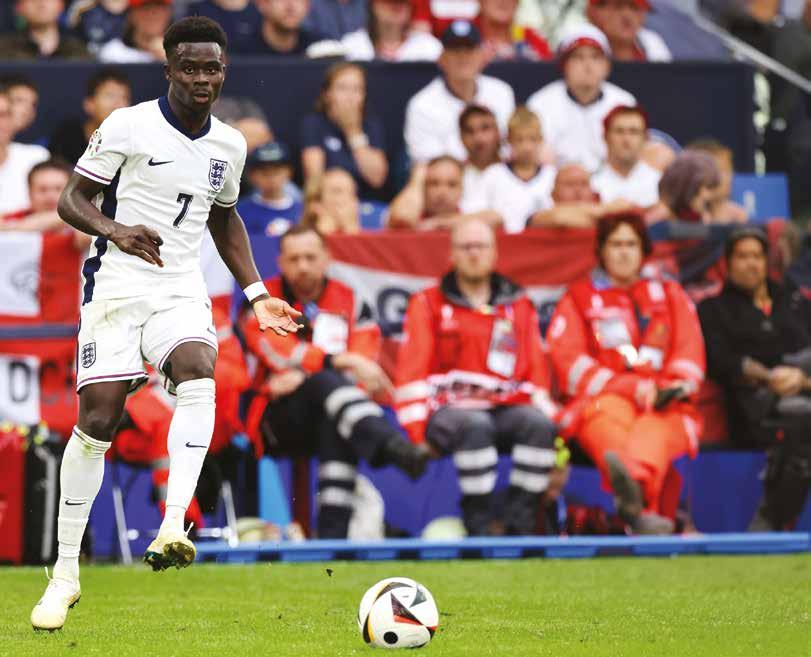

Interview by Emily Bright

Claire Walker
Tearing across north London to an interview after a train delay, I’m hardly in a serene spiritual state. But the minute I burst through the doors of St Mary-at-Finchley, profusely apologising for my lateness, I’m calmed by the peaceful atmosphere that comes from centuries of reverent worship.
I’m warmly greeted by St Mary’s rector, the Rev Philip Davison, and meet my interviewee, Claire Walker, chief executive of the National Churches Trust. Claire and I grab a pew – literally – to talk about how the charity is helping to conserve churches like this for future generations.
Instinctively, I ask my questions in hushed whispers. The church feels like hallowed ground. St Mary-at-Finchley is a grade II listed church rich with history. Its chapel was built in the 14th century, and the nave and roof date back to the 15th century. During the Second World War the

east end of the church was destroyed by bombing and later restored.
After such a past it’s hardly surprising that St Mary’s is badly in need of repairs.
To help with those repairs, it has received £20,000 from the National Churches Trust, which is dedicated to conserving such buildings. But a canopy within the church is a telling indication of work still to be done – I’m informed that if rain comes through the roof, or if the wind is blowing in the wrong direction, children’s groups will have to be cancelled.
The National Churches Trust was created in 2007, taking over from the Historic Churches Preservation Trust, which had been established in 1953. Since its inception, the National Churches Trust has helped more than 2,000 churches and chapels stay open and in a state of good repair. In 2023, it awarded more than £2 million to at-risk buildings
for urgent repairs, essential maintenance and new facilities such as toilets and kitchens.
‘Primarily we’re a heritage charity, so we will provide grants,’ says Claire. ‘But we do a lot more besides that. We support the community in how to keep the church open. We support all Christian denominations, including The Salvation Army.’
The building in which we are sitting offers a good example of the trust at work, Claire tells me.
‘It’s a church that’s open every day. They’re doing very well with volunteers, keeping the place going. They’ve got a repair project going on at the moment, which we’ve given a grant for.
‘We will also train the people in a church on matters such as maintenance and how to find the right people for the job, how to fundraise and generate

income, and what sort of things you can offer the community.’
In recent years, churches have sought to diversify income streams to keep their doors open, whether that’s the installation of a helter-skelter at Norwich Cathedral or a silent disco event – also referred to as a ‘rave in the nave’ – at Canterbury Cathedral. Such events have attracted either intrigue or anger from bemused onlookers. I wonder which side Claire comes down on.
‘I think it’s important to respect the sacred nature of the church,’ she says carefully, ‘but if you can find ways to encourage people in and you’re not damaging the infrastructure, then that’s fine. We welcome the use of buildings by everybody because they are for everybody.’
The National Churches Trust came up with its own creative income stream when it organised a silent auction in June, raising more than £16,000. Lots included a church tour with Michael Palin, signed books, days out, stays at holiday homes and framed artwork. At the time of our interview, the auction is still open, and Claire talks animatedly about it.
‘We were very fortunate to have high-profile people who join us in loving churches – one of them being Michael Palin,’ she says. ‘Hugh Dennis, Bill Bryson and Alexander Armstrong also contributed prizes. Robin Lane Fox is doing a tour of the gardens at Oxford University’s New College. All of these people are giving their time freely to help us raise money. The beauty of the auction lots is that these are things you couldn’t ever buy off the shelf.’
Celebrities aren’t the only ones championing churches. A Savanta opinion poll of 2,092 UK adults in December 2023 revealed that 68 per cent agree that the UK’s churches, chapels and meeting houses are ‘an important part of the UK’s heritage and history’. Sixty-six per cent also believe that these sacred buildings are important because they provide a place for activities and support for people, such as warm spaces
and food banks.
Claire agrees that churches play a core role in communities, assisting people whether or not they have a faith themselves.
‘They are so important because they’re there for everybody,’ she says. ‘At this church, for example, we’ve heard from the Rev Philip that people of all faiths and none come in for quiet reflection. Church is somewhere where you can feel solace and at peace. It’s somewhere you can go
Turn to page 8 f
Norwich Cathedral installed a helterskelter in 2019
Turn to page 8 f

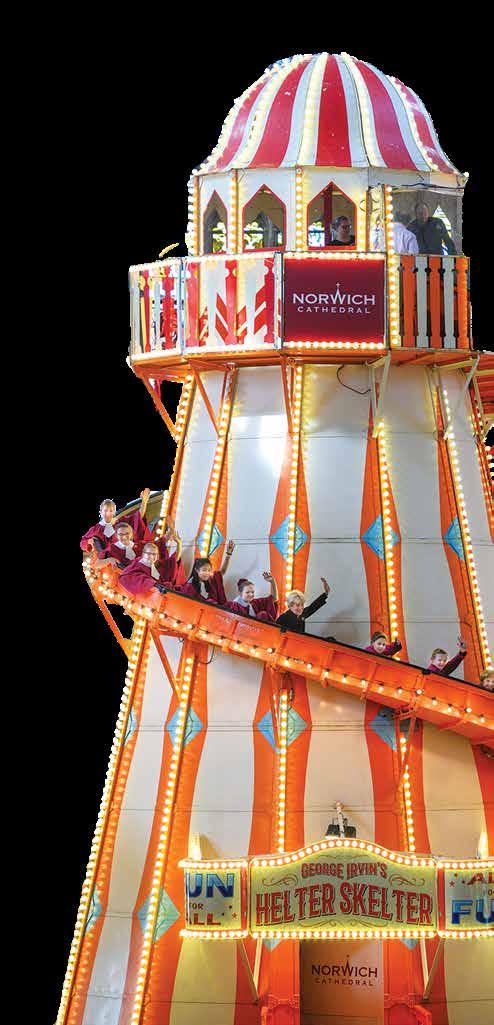
in times of happiness as well.
‘You might be new to the area or country, but churches provide a focal point where you might meet other people and start to make some friends and contacts. A lot of churches do things like coffee mornings, debt counselling services, food banks and shelters for the homeless, as well as knitting and nattering groups, flower arranging and choirs that convene in a church building.
‘What do you do if the church stops doing all those things? There isn’t anywhere else that’s going to come forward and replace, say, the homeless shelter or the coffee morning. Where would people go?’
Claire has a point. According to a 2021 update to the charity’s House of Good
report, the yearly value of UK church buildings totals £55 billion – a figure which comes from the Treasury.
‘The church is a natural place where people feel they can gravitate towards,’ continues Claire, ‘especially as churches are always first responders in times of crisis. For instance, Covid vaccinations quite often took place in churches.’
And, she explains, UK healthcare makes good use of such buildings.
‘There’s quite a lot of prescribing of NHS services and things that get outsourced to churches – there might be clinics or counselling services that the church can be used for, which is not something you’d think of straightaway.’
I have to confess that I’m biased towards these religious buildings.
I discovered faith as a child within the walls of an Anglican church and our school chapel, dating back to the early 20th century and late 19th century respectively.
But it seems as if such buildings are far more than places of worship: they’re also places of sanctuary, community and history.
After the interview, I enjoy a moment of reflection, sitting quietly in a pew to gather my thoughts before heading out into the hubbub of London once again.
As the volunteers busy themselves with getting the church ready for their next event, I leave. Reluctantly rejoining the rat race, I can see why such sacred spaces are a source of solace to people of all faiths and none.
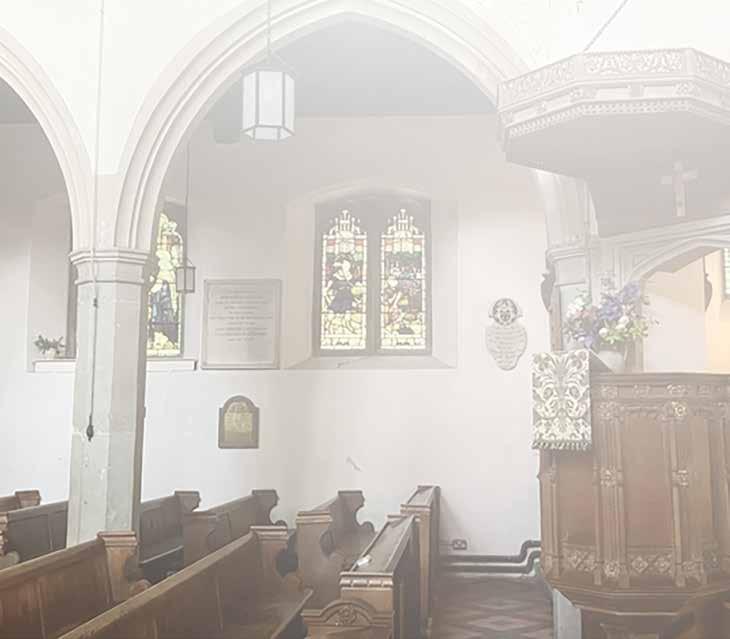
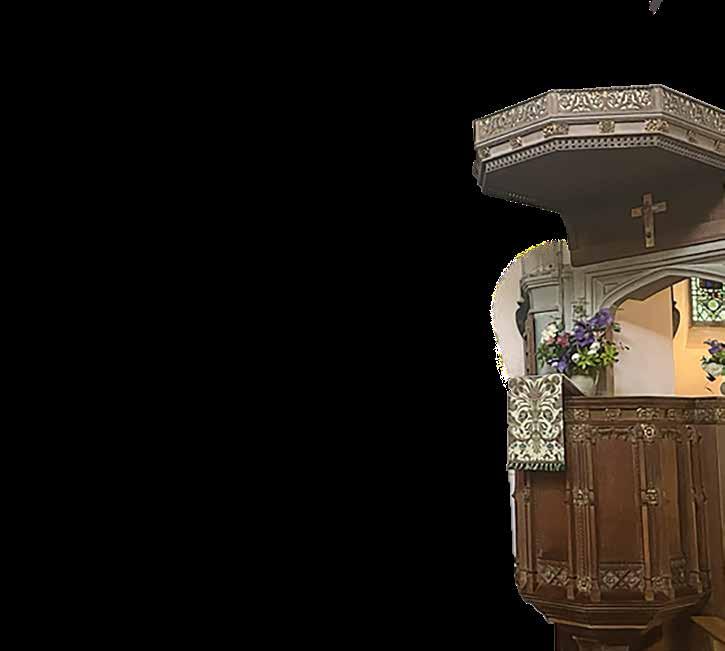
‘I
Former addict ROB FOWLER tells how an encounter with God prompted him to ditch the drink and drugs –and ultimately led him into Christian ministry
Interview by Claire Brine
At the age of 25, Rob Fowler ran a successful recruitment business, owned a swanky flat in Henley-on-Thames and enjoyed cruising round the town in his Porsche. To the outsider, he was a young man living the dream. But, in reality, Rob was close to rock bottom.
‘I was depressed, struggling with alcohol and spending most of my money on drugs,’ says Rob. ‘My life was a big mess. Lying on my living room floor, I cried out: “I don’t want to live. I don’t want to die. I just don’t want to do this any more.”
‘The moment those words were out of my mouth, I heard a voice saying to me: “It’s OK. I’m with you.” It was an out-of-this-world experience and I was filled with peace. I realised that it was God speaking to me.’
The next day, Rob woke up with a wholly fresh perspective on life. He stopped taking drugs. He was no longer driven by money. Instead, he found comfort in praying and reading the Bible.
‘Every lunchtime, I’d go and sit in this empty church and pray to God,’ he says.
‘I didn’t even really know how to pray back then, but I recognised it as a simple conversation and enjoyed the peace. A bit later, I started reading
Turn to page 10 f

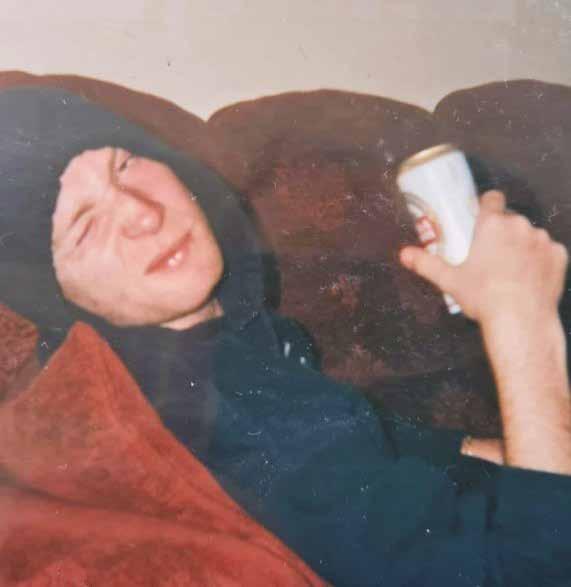
From page 9
the Bible. Then I did an Alpha course, which taught me about Jesus. Eventually, I was ordained in the Church of England in 2016.’ Today, Rob is a pioneer minister at the Redeemer Church in Plymouth.
His own connections with Christianity began in childhood.
‘When I was young, going to church was part of our family routine,’ he says. ‘But when I was about 10 years old, my football training moved from a Saturday to a Sunday, so we stopped going. Suddenly, church was just a Christmas and Easter thing. I’m sure my parents had a faith, but we didn’t really talk about God or pray together.
‘We also had a few problems in the family. There was alcoholism, which made things tense at home. I also had ADHD, so I found school difficult. I was bright and got good grades, but my behaviour was quite disruptive.’

the nest and throw himself into the carefree life of a student. He landed a place at Warwick University to study economics, but he didn’t last long.
‘I was thrown out for antisocial behaviour before the end of the first year,’ he says. ‘There were so many little offences: incidents related to being drunk, vandalism, fighting, listening to loud music at 4am, not attending lectures. I just got trashed a lot.’
After heading home, Rob decided to get his act together and give university another go. This time, he chose to study maths at University College London.
‘Because I was bright and functional, I managed to blag my way on to the course,’ he says. ‘And I had every intention of doing well. But, while I’d always been a good starter of things, I wasn’t a finisher.
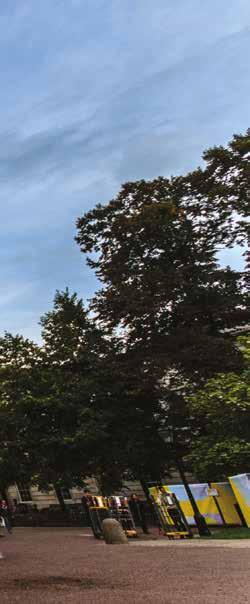
starting blocks – but then I’d lose interest and couldn’t keep up the effort. And when that happened, I didn’t find a happy place in the middle, but pressed the self-destruct button. It was a pattern I kept repeating.
‘The problem I had at uni was that I didn’t know who I wanted to be. So I surrounded myself with new people and grew further away from my old friends back home, who were getting their degrees, finding their first jobs and marrying. Eventually, I was kicked out of UCL, which meant that at the age of 21, I felt that the doors of a normal life were shut to me.’
I made a lot of money, but spent most of it on drugs
found himself wondering where God might lead him in the future. Six months later, in 2008, the recession hit.
‘I lost the business,’ Rob says. ‘But it was God’s perfect timing – because if my idol had still been money, I wouldn’t have coped. Yes, the recession was difficult, but it didn’t floor me. Money wasn’t the most important thing to me any more.’
Instead, Rob found infinite value in his faith in Jesus. He still does.
‘I know that I belong to someone who cares for me,’ he says. ‘Jesus is my shepherd – he has taken hold of my life and is responsible for giving me what I need. He shows me what needs to change in my life and helps me to do that.
‘In the past, whenever I’d tried a new sport, I’d always been the first one off the
Despite his lack of a degree, Rob went on to set up a successful business in recruitment. He worked hard and partied harder.
‘I made a lot of money, but spent most of it on drugs, such as cocaine and MDMA,’ he says. ‘That’s when my mental health began to deteriorate. I started having panic attacks. I also developed anxiety after experiencing two drug-induced psychotic episodes. By the time I was in my mid20s, depression had set in. I realised that I’d achieved all my goals, but I didn’t feel anything. I was lonely and empty on the inside, thinking: what next?’
In a moment of despair and feeling desperate for life to change, Rob cried out for help. He didn’t expect God to be listening.
‘Back then, I never gave God a second thought,’ he says. ‘I had zero interest. But when I crashed and cried out for help, I was filled with peace. Within an hour I’d identified that peace as coming from God.’
Overnight, Rob became a new man. He never took drugs again. His colleagues at work noticed the difference in him.
‘I was far from perfect,’ he says, ‘but they could see the dramatic transformation of a man who had suddenly gone from being active in his addictions to being able to move forward in life. I think they also saw that when I made mistakes, I was quicker to say sorry than I had ever been before.’
After spending time in prayer, reading his Bible and joining a church, Rob became a Christian. He
‘I get the sense these days that I’m no longer the manager of my own life. That pressure doesn’t rest on my shoulders. I trust Jesus to deal with the difficult stuff that comes up and place me wherever he needs me to be.’
After losing his business, Rob found work in an IT consultancy firm in London. Four years later, he took a step of faith by moving into Christian ministry.
‘I want to devote my life to sharing what I’ve found in Jesus,’ he says. ‘It’s about getting people together who would not usually mix or consider themselves “religious”, and helping those who hit the buffers in life.
‘There are days when having a faith is tough. But it’s also a lot of fun. I’ve experienced breakthrough and delight and transformation. I’m finally living life in all its fullness.’

The War Cry invites readers to send in requests for prayer, including the first names of individuals and details of their circumstances, for publication. Send your Prayerlink requests to warcry@salvationarmy.org.uk or to War Cry, 1 Champion Park, London SE5 8FJ. Mark your correspondence ‘Confidential’.
There is no set formula to becoming a Christian, but many people have found saying this prayer to be a helpful first step to a relationship with God



Andrew Stone explores song lyrics that have a note of truth about them
Theatre-goers are being wowed by the West End’s revival of Jerry Herman’s musical Hello, Dolly! with Imelda Staunton in the title role.
Based on a 1938 farce, The Merchant of Yonkers by Thornton Wilder, the story centres on middle-aged widow Dolly Gallagher Levi. One of the many strings to Dolly’s bow is that of matchmaker for the singletons of New York society.
However, as the show opens, Dolly comes to the realisation that it is time for her to move on in her life. She has decided to match herself with the ‘halfmillionaire’ Horace Vandergelder – she just hasn’t told him that yet.
As the comic plot draws in the audience, so Dolly becomes all the more determined that life is not going to pass her by and that she will start a new chapter.
Lord Jesus Christ,
I am truly sorry for the things I have done wrong in my life. Please forgive me. I now turn from everything that I know is wrong.
Thank you that you died on the cross for me so that I could be forgiven and set free.
Thank you that you offer me forgiveness and the gift of your Holy Spirit. Please come into my life by your Holy Spirit to be with me for ever.
Thank you, Lord Jesus. Amen

The first act closes with the number ‘Before the Parade Passes By’, in which Dolly equates the 14th Street Association Parade with the passing by of her own life. ‘Before the parade passes by/ I’ve gotta get some life back into my life,’ she sings. ‘I’m ready to move out in front,/ I’ve had enough of just passing by life.’
The feeling that life is passing by without much purpose is something that members of the Hello, Dolly! audience may well relate to – along with many other people.

It can be easy to feel disappointed with the way our life has turned out: humdrum, unexciting and not really going anywhere. But it doesn’t have to be like that. Jesus offers something different. He said: ‘My purpose is to give life in all its fullness’ (John 10:10 The Living Bible).
The full life that Jesus offers is one of purpose. People who believe in him have seen their lives change completely as they allow his teachings to show them how to find a new direction.
Life doesn’t have to pass us by. We can be wowed with a new life through following Jesus.

To receive basic reading about Christianity and information about The Salvation Army, complete this coupon and send it to
War Cry 1 Champion Park London SE5 8FJ
Name
Address Looking
Or email your name and postal address to warcry@salvationarmy.org.uk


1 2 3 4 5 6
Which actress provides the voice for the character Joy in the animated film Inside Out 2 ?
Which band had Top 10 singles in the 1980s with ‘Girls on Film’ and ‘Rio’?
In what year did the supersonic airliner Concorde make its final commercial flights?
What is the title of Chris Broad’s bestselling book about his experiences of living in Japan?
What does the Spanish word ‘mañana’ mean in English?
How many minutes are in a day?

ANSWERS 1. Amy Poehler. 2. Duran Duran. 3. 2003. 4. Abroad in Japan. 5. Tomorrow. 6. 1,440.
Feature by Claire Brine
Readers of all ages are getting stuck into good books at the Edinburgh International Book Festival. Authors including Alexander McCall Smith, Kate Atkinson and Philippa Gregory will be inspiring audiences as they discuss their bestselling titles, revealing the stories behind why and how they write.
The theme for this year’s festival is Future Tense, designed to encourage exploration of some of the problems facing the world today and how individuals can, or should, change the future. More specifically, a number of writers are giving talks in which they address the question of how to live a meaningful life. Audiences will be invited to ponder: What does ‘meaning’ mean anyway? What does it feel like to have faith?
One author up for tackling such questions is the thinker and broadcaster Richard Holloway. Today (Saturday 17 August), he will be talking about his latest collection of essays, On Reflection, unpacking his thoughts on faith, forgiveness and art.
Another writer considering the meaning of life is Olesya Khromeychuk, the director of the Ukrainian Institute London. In her talk next Thursday she will discuss the importance of paying attention to what’s going on around us, even when the temptation can be to switch off.
In a world which can sometimes feel overwhelming, it’s only natural to seek meaning. For centuries, people have been wrestling with the question: what is the point of life?
Perhaps there’s no easy answer – but one historic book tells the story of how we can try to make sense of the world and our place in it. In the Bible, we can read of how Jesus lived his life showing people what God’s love looked like. He stood up for those who were oppressed. He loved his enemies. He forgave people when they made mistakes. Then, he invited people to discover God’s love for themselves, explaining how with the words: ‘I am the way, the truth, and the life’ (John 14:6 Contemporary English Version).
When we start to follow Jesus’ example, allowing ourselves to be transformed by God’s powerful love, our future can take on a whole new meaning.

(5)
(5)
(5)
(5)
(5)
Garden hut (4)
Ditch (6)
Hasten (5)
Yell (6)
Firearm (5)
Sediment (5)
(5)
(5)
(6)
(5)
(6)

(5)
(4)
(7)
Detective (6)

Abbreviated
18. Depress (6)
19. Alcove (6)
21. Insult (6)
22. Ignite (6)
23. Frequently (5) 24. Demise (5)
Each solution starts on the coloured cell and reads clockwise round the number


Long, narrow ditch
Protective bar on a car
Government
Fail to remember
Pouch on clothing
Sloping typeface
Trench. 2. Bumper. 3. Regime. 4. Forget. 5. Pocket. 6. Italic.
8.
5.
10. Aisle. 11.
ACROSS: 1.
QUICK
Fill the grid so that every


INGREDIENTS
METHOD
Preheat the oven to 200C/Gas Mark 6.

2tbsp Cajun seasoning
3tsp oil
1 garlic clove, peeled and finely chopped
2tsp runny honey
500g potatoes, peeled and diced
1 red pepper, cored, deseeded and diced
1 onion, peeled and cut into wedges
450g lean pork fillet, trimmed
Ground black pepper
100g green beans, topped, tailed and halved
1tbsp fresh parsley, chopped, to garnish
In a small bowl, mix the Cajun seasoning, oil, garlic and honey together.
INGREDIENTS
8 Lincolnshire or Cumberland sausages
2 beetroots, peeled and cut into thick fingers
1 sweet potato, cut into wedges
4 parsnips, peeled and cut into wedges
3tbsp olive oil
2 fresh thyme sprigs
Salt and ground black pepper
Smoked paprika




Place the potatoes, pepper and onion in a large non-stick roasting tray lined with baking parchment or foil. Add half the Cajun mix and gently toss together to coat the vegetables.
Place the pork fillet on top of the vegetables, season with black pepper and coat with the remaining Cajun mix. Cook in the oven for 15 minutes.
Remove from the oven, gently turn the vegetables with a large spoon and add the green beans. Return to the oven and cook for a further 10-15 minutes. Remove from the oven and leave to rest for 5 minutes. Slice the pork fillet and serve with the vegetables, garnished with parsley.

Preheat the oven to 200C/Gas Mark 6.
Line a large roasting tin with baking parchment and add the sausages and vegetables. Brush with half the olive oil and roast in the oven for 20 minutes.
Add the thyme, season well with the salt and black pepper and sprinkle with a pinch of paprika.
Drizzle with the remaining olive oil. Continue to roast for 10 minutes, then remove from the oven and serve with a selection of dips.

before you before you were born were born loved you loved you
Henri Nouwen